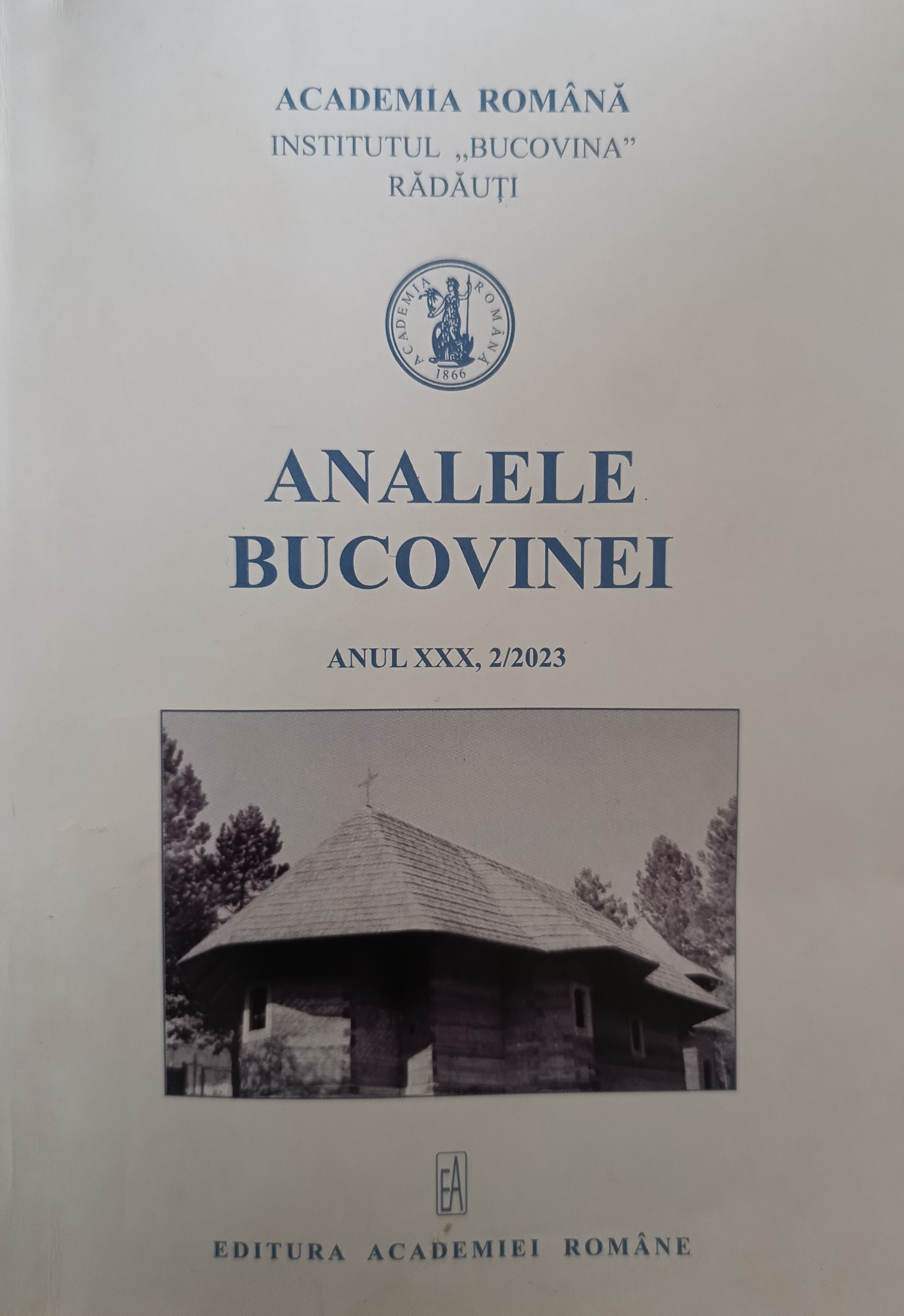MANIFESTĂRI ETNOFOLCLORICE ALE GRUPURILOR ETNICE DIN BUCOVINA ÎNTRE DINAMISM ȘI CONSERVARE
Ethno-folkloric Manifestations of Ethnic Groups from Bukovina Between Dynamism and Conservation
Author(s): Constantin-Andrei PătrăuceanSubject(s): Cultural history
Published by: Editura Academiei Române
Keywords: ethnic group; ethno-folklore; Bukovina; dynamism; conservation
Summary/Abstract: In the present work, we aim to create an overview of the specifics of the existing ethnic groups in Bukovina, considering, in particular, manifestations of their folklore in the context of the present. Likewise, another objective of the research is represented by the monitoring of these folklore facts, in order to observe both the dynamism and the preservation of the identity. Thus, the existence of a favorable climate within the Bukovina community favored the formation of a multi-ethnic space in which each ethnic group had a well-established place, forming, as specialists claim, the so-called homo bucovinensis, as a model of a tolerant and lenient. In this way, we will observe the directions of the ethno-folkloric dynamism specific to the ethnic groups in Bukovina (Jews, Poles, Ukrainians, Hutsuls, Roma, Lipovans, etc.), analysing the way of updating the myth in these minorities and the role of the myth in contemporary society. Among the most important folklore manifestations, we will focus on three important elements: currently existing rites of passage (funeral, wedding), the image of the demonic in the collective mind and functions of pilgrimages, on the border between ritual and tourism. Due to the dynamism existing within contemporary society, some of these ethno-folkloric manifestations have undergone numerous changes, both in form and content, and thus we can talk about the so-called kitsch, as a contemporary element that is a component of the specific folklore within the ethnic groups in sight. The attempt to trivialize the ethnic specifics of minorities must be considered a negative effect of contemporary society, where preserving popular customs, traditions or gastronomic specifics no longer represents a special interest for current consumerism. The conclusion we have to reach illustrates the fact that ethnic groups become part of a collective identity where customs related to holidays, rites of passage, ceremonial events in human life require treaties with a necessary responsibility. Within the existing minorities in Bukovina, cultural tolerance is a value of the society, thus there is an awareness of the ethnic peculiarities of each area and a respect for them, at the level of acceptance of diversity related to customs, rituals or perspectives on the world.
Journal: ANALELE BUCOVINEI
- Issue Year: 61/2023
- Issue No: 2
- Page Range: 513-532
- Page Count: 20
- Language: Romanian

